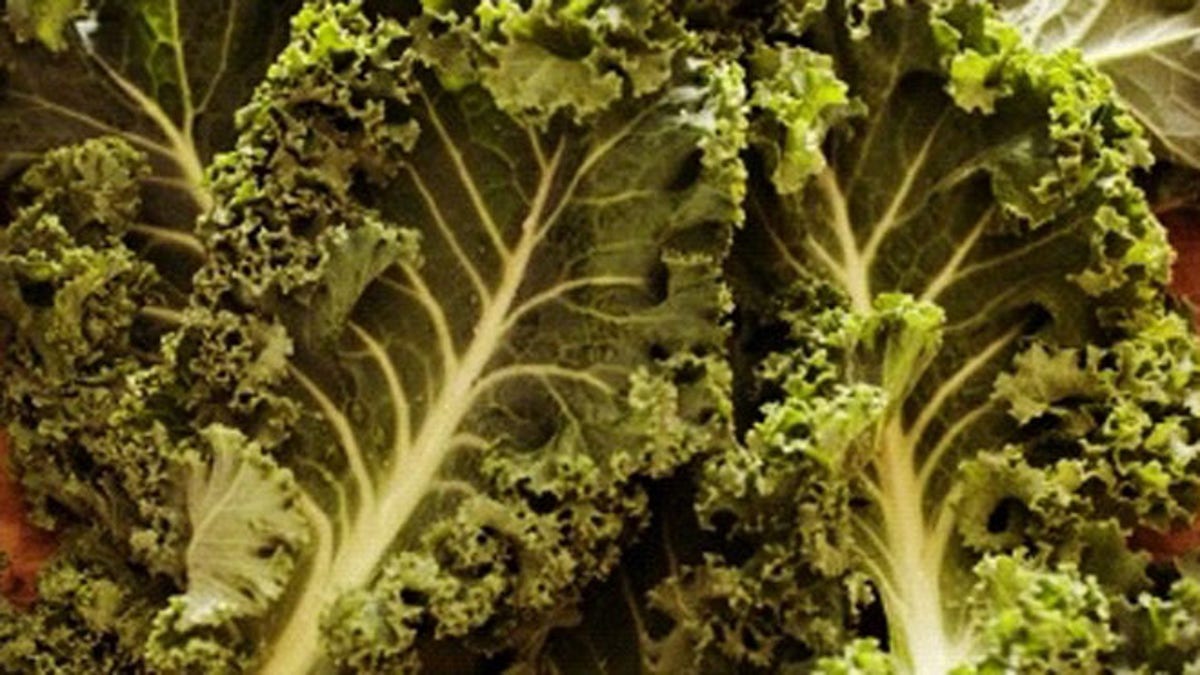
(Rosie Acosta)
To help protect your DNA and reverse genetic aging, avoid or reduce consumption of the phytochemicals that can harm you. It's important that you do this, because once phytochemicals like psoralen become activated, they can target your DNA destructively.
Granted, the process of DNA damage is complicated. Take celery, for example. Celery and many of the other plants in its family, such as parsnips, make natural poisons called furocoumarins. Psoralen is one such toxic chemical insecticide that celery uses to fight off insects that want to turn a celery plant into their next meal.
More: 7 Mistakes That Make You Age Faster
The more that a plant like celery is stressed, say by an insect munching on its leaves, the more psoralen it’s going to make in response. The synthetic pesticides used in conventional growing practices kill the insects that increase the amount of psoralen present.
To avoid being poisoned, some insects have adapted their behavior to counter this bit of chemical warfare and roll themselves up in a leaf to stay in the dark while they happily digest their celery. By doing so, the insects protect themselves from the sunlight that would activate and turn "on" the psoralen that the insects just ingested.
To avoid getting too much of the DNA-damaging phytochemicals, make sure you avoid these foods:
Do not eat too much of the same food
Your body and the DNA within it actually evolved to have their needs met by having you constantly consume a variety of foods. Monoeating is the single best way to ensure that you're going to be deficient in some nutrients and poisoned by getting too much of others. This sounds like simple advice, but when it's not followed, you can get yourself into trouble quite quickly.
Overly bitter cucumbers
Cucurbitacins, for example, are highly toxic natural chemicals that can damage your DNA and are found in vegetables such as cucumbers. They also happen to be extremely bitter and can even be tasted at one part per billion, or ppb. So if you happen to bite into a bitter-tasting cucumber, especially if it was organically grown, better to leave it on the plate than risk harming your DNA.
Large amounts of kale, Brussels sprouts, cauliflower, or mustard greens
Goitrogens are phytochemicals that are found in vegetables such as turnips. It's thought that they might be responsible for a small number of goiter cases every year because they interfere with your thyroid's natural ability to take up iodine from your diet. Avoid sourcing all of the vegetables in your diet from raw Brassica member plants such as kale, Brussels sprouts, cauliflower, and mustard greens. Enjoy these delicious veggies cooked, (try any of these 7 Brussels sprouts recipes to start) since many of the dangerous isothiocyanate compounds luckily become inactivated with cooking. So no more raw kale, because it's full of goitrogens!
Peanuts
Mycotoxins are another group of naturally occurring chemicals that are produced by fungi that have infected and contaminated one of your food sources. Aflatoxins are produced by some strains of the microbe Aspergillus flavus and are some of the most carcinogenic and toxic natural compounds known. Besides being able to cause liver cancer, they can also cause birth defects and directly damage your DNA, so reach for these liver-healing foods instead.
The possible presence of aflatoxins (there are four types, with B1 being the most potent and common in foods) is why you should not eat any peanuts or peanut-containing. Imported peanuts can often contain much more aflatoxin than peanuts produced in the United States, but there's no way for you to ensure that your peanut butter has been properly tested and is aflatoxin-free.
Commercially produced applesauce and puree
Patulin is another mycotoxin that is produced by different microbes that can often sneak their way into your food. This mycotoxin sometimes finds its way onto your dinner table in apple juice, applesauce, or even apple pies. Often commercial producers use moldy foods like apples to make these products, because the processing hides the fact that they are spoiled and should not be consumed. That's simply disgusting. Patulin in bruised apples is why you should skip them entirely and should also watch out for things that have been sweetened with apple juice, as you're not allowed those either.
Apple juice and apple cider (nonalcoholic)
There's one way to drink your apples and not get exposed to patulin, and that's by drinking hard apple cider. Interestingly, when apple juice is fermented into an alcoholic drink from apple juice, patulin breaks down naturally. With the notable exception of an occasional unsweetened excellent-quality hard apple cider from a local microbrewery, there's truly no reason for you or your family to consume apple juice or otherwise processed apple products, since they've been shown to damage your DNA.
Dried fruits
Ochratoxin A is another mycotoxin produced by microbes that also damages your DNA. It can make its way into your diet through contaminated foods such as dried fruits, bruised apples, and improperly stored cereal grains. It's also been detected in many milk-based infant formulas, cereal-based baby foods, and apple-based baby foods as well.








































